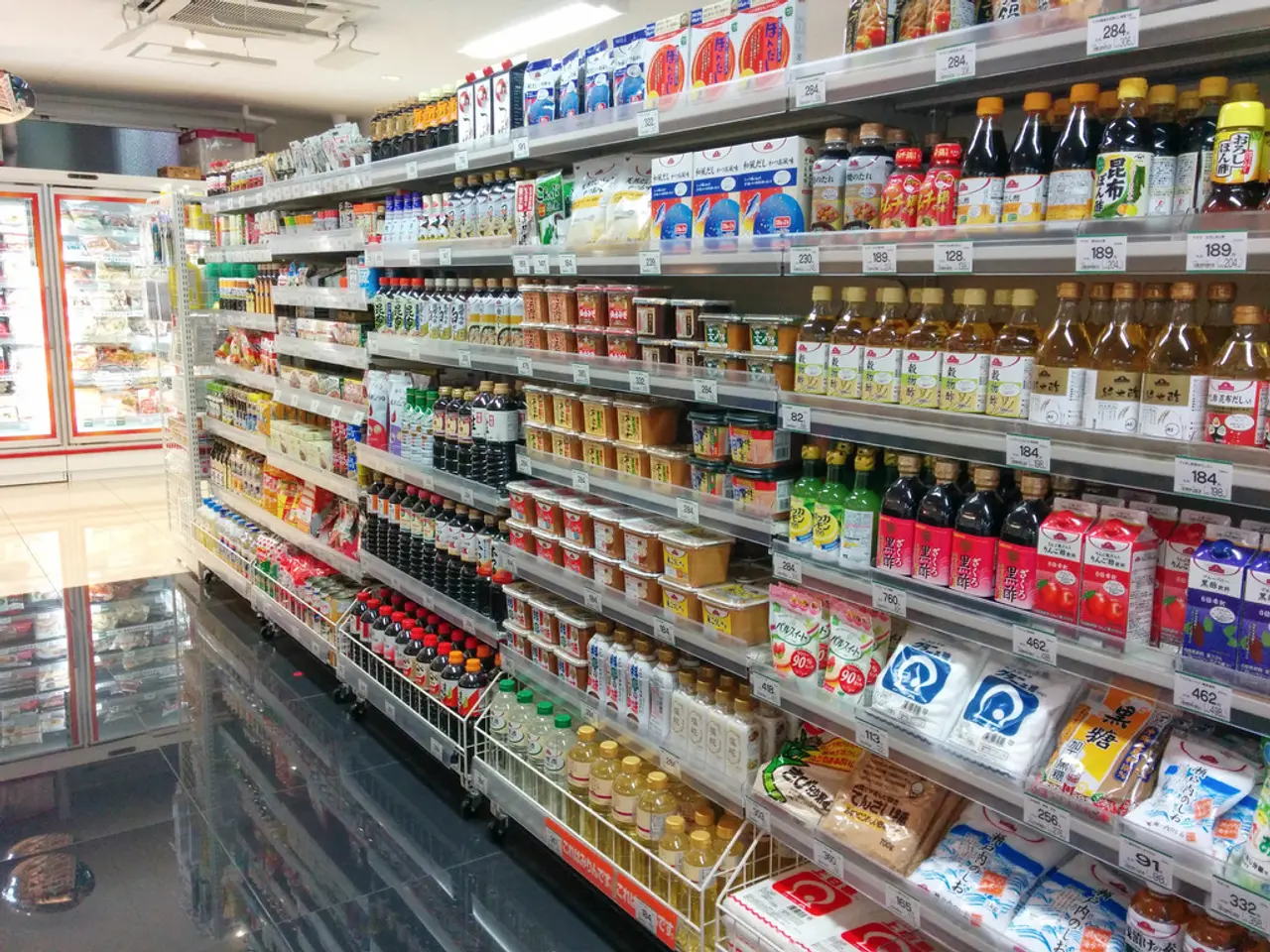Supply Shortage: Matcha Drinks Sell Out Rapidly at Various Outlets
The global demand for Matcha, a finely ground powder of specially grown and processed green tea leaves, is experiencing a significant surge. This increase is primarily driven by the growing awareness of its health benefits, the rise in demand for functional and plant-based foods, and its expanding appeal as a modern lifestyle and wellness product.
The hype around Matcha has increased significantly, as reported by Shigehito Nishikida, manager of Jugetsudo in Tsukiji, Tokyo. Consumers are increasingly seeking antioxidants, energy-boosting, and easy-label products, which Matcha embodies as a powdered green tea rich in antioxidants and other nutrients. The trend has spread via social media platforms like Instagram and TikTok, according to Anna, a saleswoman from a Berlin branch of a US coffee chain.
However, this surge in demand is causing significant supply challenges. Matcha production relies on specialized cultivation and processing of young tencha leaves under specific geographic conditions in Japan, particularly regions like Uji and Yame. These centuries-old methods limit how quickly production can scale. The supply chain is strained with low yields in recent years and overwhelmed grinding facilities, leading to record-high prices that have surged over 180% in 2025 alone.
The intense competition at Japan's tea auctions, as global buyers compete for limited quantities, causes bottlenecks and restrictions on sales. This competition is not only internal but also international, with countries like the USA and Germany seeing growing consumer interest in health beverages and functional foods. However, supply shortages from Japan have resulted in product scarcity and higher prices in these markets. Retailers and cafes face challenges stocking premium ceremonial-grade matcha consistently.
Jugetsudo in Tsukiji is trying to prevent reselling of Matcha by not selling large quantities to suspected resellers. In the USA and Germany, the demand for Matcha continues to rise, but supply shortages have resulted in product scarcity and higher prices. Retailers and cafes face challenges stocking premium ceremonial-grade matcha consistently.
The situation is expected to persist as the market continues to grow, albeit at a more measured pace due to these supply constraints. In 2024, Matcha accounted for over half of Japan's green tea exports. The production of Matcha is a laborious process that requires years of practice. A bowl of Matcha tea in a cafe costs at least ten dollars (around 8.50 euros), and 20 grams of Matcha powder for home preparation ranges from 25 to 150 dollars.
The Matcha trend has also reached coffee chains like Starbucks. Masahiro Okutomi, a tea farmer in Japan, reports high demand for Matcha and had to stop accepting orders. Zach Mangan, owner of Kettl in Los Angeles, reports that out of 25 Matcha varieties, 21 are sold out.
In addition, the Matcha trend in Germany might also be influenced by the song "Bauch, Beine, Po" by Shirin David. President Donald Trump's plans to impose 24 percent tariffs on Japanese products could further increase the price of Matcha in the US.
In summary, the Matcha market is expanding robustly due to health and lifestyle trends worldwide, but production limitations in Japan and surging global demand have led to shortages and price spikes, impacting availability in countries like Japan, the USA, and Germany. This situation is expected to persist as the market continues to grow, albeit at a more measured pace due to these supply constraints.
The financial implications of the Matcha trend are profound, as soaring demand has led to record-high prices, with Matcha powder costing between 25 to 150 dollars for home preparation. To cope with this surge, the community policy of Jugetsudo in Tsukiji restricts sales to suspected resellers. Concurrently, cafes and retailers in the USA and Germany face challenges maintaining a consistent supply of premium ceremonial-grade Matcha, due to international competition and strain on the supply chain, exacerbated by lifestyle preferences for antioxidant-rich, energy-boosting, and functional food-and-drink options.




